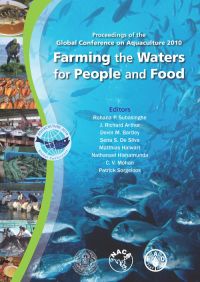National Training Workshop for Cluster Certification Trainers
22 April 2011 | 20294 views | Food Security, Safety and Certification, Livelihoods, gender and social issues, Thailand, Education and Training
Small scale farmers are under increasing pressure from the globalised trading environment. International requirements on food safety, traceability, animal health and welfare and social responsibility are increasingly stringent. The burden of compliance and the cost of certification are particularly heavy for small scale farmers who are often excluded by the limited resources at their disposal. Working in groups can help small scale farmers attain economies of scale necessary to address compliance issues and participate in certification schemes, improving their competitive position. However, forming collaborative groups and coordinating their activities brings it own challenges. The Food and Agriculture Organisation of the United Nations (FAO) supported the Government of Thailand to implement a technical coperation project on "Certification for small-scale aquaculture in Thailand". A train-the-trainers workshop was convened from 21-23 April 2011 to extend the outcomes of the project to DOF personnel involved in aquaculture certification and extension.
Copyright, all rights reserved.
